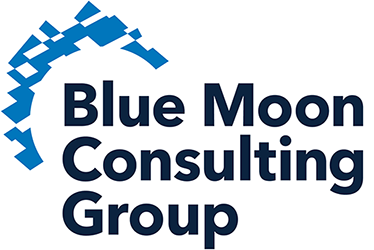
Insights for College and University Leaders
As the upcoming election season approaches, board members and top campus administrators must increasingly anticipate and navigate cultural challenges with tact and insight. In this episode, Erin Bossen and Simon Barker of Blue Moon Consulting Group speak with AGB’s Morgan Alexander about proactive strategies that decision makers can pursue to foster inclusivity, navigate controversies, and maintain harmony within their institutions. Drawing upon their extensive experience in crisis and issues management, Erin and Simon shed light on the current cultural and political environment and the issues that the upcoming election season will inevitably exacerbate, addressing specific concerns that will likely shape the campus climate and impact student experiences at colleges and universities around the country.
Key Takeaways:
- Understanding the distinction between the board’s and the administration’s roles in managing cultural issues
- Clarifying institutional values and using them as a guide through complex issues
- Establishing parameters and processes for communicating (or not) with key constituencies
- Asking key questions of your leadership team to ensure your institution is prepared
Aired: June 20, 2023
Opinions expressed in AGB podcasts are those of the speakers and not necessarily those of the organizations that employ them or of AGB.
Podcast Transcript
Introduction:
Welcome to the Trusteeship Podcast from AGB, the Association of Governing Boards of Universities and Colleges. We cover everything higher education leaders need to know about the challenges facing our nation’s colleges and universities. More important, we provide the facts and insight you need to solve those challenges and to be the storytellers and advocates higher education needs.
Today we’re talking about navigating cultural challenges with tact and insight. In this podcast, AGBs Morgan Alexander talks with Erin Bossen and Simon Barker of Blue Moon Consulting Group about how to equip decision makers with proactive strategies to foster inclusivity, navigate controversies, and maintain harmony within their institutions. Drawing upon their extensive experience in crisis and issues management, Erin and Simon shed light on the current cultural climate and inevitable issues exacerbated by the upcoming election season, addressing the concerns that shape the campus climate and impact student experiences.
Morgan Alexander:
Welcome everybody. I’m glad to have everyone join us today for this podcast episode, and I’m doubly glad to have the chance to speak with today’s guest, Simon and Erin, I know we have a lot to talk about, so let’s get right into it. Higher education is often accused of being isolated in its own ivory tower, but college and university leaders know that’s not true.
Can you give me a few of the most important social and cultural issues the governing boards and presidents should expect to make waves on campus in the next academic year, and what should the board’s role be in responding to them? Simon, I’d like to get your take first.
Simon Barker:
Well, thank you. Well far from being isolated, I would suggest that universities and colleges are the crucible where a lot of these political issues are thought about first, argued about first, and that is part of the rich heritage of the role of higher education. But unfortunately, we’ve seen that role become increasingly politicized. So it really is a place that is really where a lot of these political and cultural issues are battled first. And I think we think of things like the politicization of DEI initiatives starting in Florida, but spreading across the country, issues around academic freedom, reproductive rights where social issues essentially are bleeding onto campus in very direct and difficult ways.
And then of things like affirmative action and the decision of Supreme Court, which will have direct impact on higher education admissions policies. So there’s an awful lot of issues, perhaps more issues now than we’ve seen in a number of years. And of course the election season that tends to exacerbate risk and the role of universities is just starting to gear up. So there is a lot that board members need to be thinking about.
Morgan Alexander:
Erin, how do you see the role of the board? When is it appropriate to get involved?
Erin Bossen:
It’s really important to recognize the role of the board and when it is appropriate. We find that it goes one of two ways, either the board really takes a hands-off approach and kind of rubber stamps the decisions that are made by the President or the board becomes highly concerned and overly involved, and they sort of leave that oversight role behind and take on the responsibility of managing the issue at hand. And neither one of those is ideal, but an overly active board, even with the best of intentions can actually undermine the President and the administration and sometimes create even more issues. We had that happen with the school recently, Simon.
Simon Barker:
I think a cautionary tale would be, it was last year around the issue of Critical Race Theory. The board chair at a particular private institution decided that a speaker who was going to speak on CRT would not be appropriate for that school, and that the invitation had already been established and set up, and this particular board chair unilaterally brought that invitation back. And this was quite a prominent person in that space. And it unfortunately led the backlash against that decision to rescind an invitation actually led to a number of exits, including the board chair who had to resign that position. And I think that is an example, albeit an extreme one, where the board speaking to a subset of stakeholders has a point of view of what they think is in the best interest of the institution, makes a decision, and it boomerangs very, very badly.
Morgan Alexander:
So speaking of communication, Erin, how should campus administrators as opposed to boards be communicating with these stakeholders? And when I say stakeholders, we’re talking about students, faculty, staff, sometimes the alumni, the public. How do administrators talk about these issues?
Erin Bossen:
Certainly. Well, first, we should always step back and ask ourselves, should we be communicating at all on this issue? We don’t recommend commenting on every issue that arises. In fact, we tend to advise against getting pulled in to every headline and every trending topic. You really want to focus on preserving particularly your president’s voice, because there’s value in that scarcity. And the president’s voice is much more impactful and powerful the less often that you use it.
So instead, what we advise administrations to do is develop a process, a sort of set of criteria that can help you decide when the president or another leader is going to speak on a topic. So a couple of ideas you can ask your team, is there a campus leader that’s closer to this issue that we should have speak publicly or address the affected part of our community directly? Is this issue something we’ve already addressed through the programs and policies that we already have in place?
And importantly, beyond just standard words of support, encouragement, a restatement of your values, does your president or your campus leader have something actually new and important to say about this issue that aligns with your strategy and the mission of your institution? Those are just a few ideas, but without that evaluation criteria, the leadership team spends a lot of time trying to decide whether or not to speak in figuring out how to answer the loudest critics. And they often get distracted sometimes by an issue or a topic that may not even be meaningful to your most important stakeholders.
Simon Barker:
I think that’s a great point, and I think let’s just talk a little bit about social media because social media exacerbate that exact challenge, right? Where something that you wouldn’t have known about was being discussed in certain quarters, now suddenly we know everything that is being discussed and that can drive a pressure to, well, we must respond. We have to say something on this topic. Whereas 5, 10 years ago, you wouldn’t even know that that was part of the conversation at all and you would’ve happily ignored it.
Now, I’m not saying that’s the best answer, but I do think we need to recognize the social media tends to make it more likely that we will overreact to something that actually doesn’t have the strategic importance that you think it is if you just look at certain posts and so forth, which is why the process that Erin talked about is really so important to have in place because you could just see something, we’ve got to say something, we’ve got to get on top of this. And typically the best way is to just simply ignore it and write it out or recognize that by engaging you are giving that topic an importance and those who are speaking an authority that they typically don’t actually warrant.
So we really need to sort of keep our eyes on the social media environment, it’s an incredibly useful tool, but let’s make sure that we don’t use it to overreact and feel like we need to opine on every single topic.
The other thing that we need to think about is sometimes regardless of how effective we communicate things just get traction on their own and sort of false narratives are created that create all sorts of different problems for the administration and sometimes for the board. And I’ll give you a quick example. There was a lot of board angst at this particular institution as well as administration angst when an adjunct faculty invited Hunter Biden to speak at this school, that got turned out to this school had hired as a full-time professor Hunter Biden, that created all sorts of issues for the board.
It’s really important that we take the opportunity to measure the environment. And if there are misinformation out there, how do we correct that in a way that doesn’t exacerbate it? And just sometimes that’s helpful. We wouldn’t have known that that was a problem. But social media also does tend to play that role of misinformation getting traction, and you are going to be forced to correct the record when there’s just simply things that are just simply not true.
The final thing I’ll just say on the social media thing as a board member is you all have your private lives. You all have your business operations, and some of you may or may not be more active on social than others, but those posts, those tweets will be and can be interpreted as reflecting on somehow on the institution that you represent as a board member. So it’s worth sort of filtering yourself and say, is this something that I really want to have to defend if this gets traction or gets taken out of context? So social media certainly exacerbates the issues and can certainly create a lot of problems around these cultural issues where there’s really no win.
Morgan Alexander:
Simon, how do you manage all of the different stakeholder groups that have very different perspectives due to age or culture or political beliefs or any other number of characteristics that people might choose to identify themselves? How do you talk to them in ways that acknowledge those differences but don’t kind of create surprises and create double speak and that sort of thing?
Simon Barker:
That’s a great question, and I think the first important thing to do is recognize that the goal is not to try to persuade everyone. Everyone has very different and sometimes entrenched points of view. The key really is to focus on what we call the persuadables. Those people in the middle that are open to the administration’s point of view, open to hearing what the school has say and are not an entrenched, and we need to focus on communications that are true to our values, but actually are aimed at those people. There are certain constituents, doesn’t matter what we say or what we do that will believe that we are on the right side of a particular issue. Erin, what do you think?
Erin Bossen:
Well, it’s also really important to know what that institutional point of view is and get some real clarity on that, knowing the institution’s core values and measuring your decisions against those. And what we want to avoid is sort of changing direction with the win following public opinion, because that can change every day.
So it’s important to know the institutional point of view and stand firm in that identity, and don’t wait to define that identity until the issue comes to the fore. You want to have a really clear understanding among the board and your leadership team and your community about what those values are. And I’ll give you a quick example. We work with a lot of faith-based schools, and one was really struggling with whether or not to allow a student organization to have a fundraiser that was going to benefit Planned Parenthood.
So in that case, they had some competing core values. On one hand, really traditional Catholic values and on the other, a strong commitment to freedom of speech and expression on campus and among their student bodies. So even on a faith-based campus where you might think those core values are really clear and ironclad, your answers aren’t always going to be clear. The leaders are still going to have to grapple with how your core values are weighted against one another.
But having those core values in place and having a common understanding of those among your community is a really good place to start, and it helps you find your true north and measure your decisions against that. Without those core values, you really are left swaying with the wind and you are going to be pulled by public opinion.
Morgan Alexander:
So what are some proactive steps that boards can take to prepare? And Simon, what questions should members be asking of their senior leaders, senior administrators?
Simon Barker:
Well, I think the issues we raised at the top, I think a great question to go back would be what is our institutional point of view on these topics? Have we done the work to understand the impacts and consequences of that issue, how we would communicate it? And for example, the Supreme Court decision, every school should be absolutely ready to articulate what that decision means, how they’re going to adopt, what impact it is going to have on them. There really is no excuse for an administration team to not know what their response to the decision is going to be.
So from a board perspective, it’s like what are the top three or four issues that you are concerned about and you want to understand whether or not the institution has defined a point of view. One of the things that we like to develop with schools who are trying to be more proactive and try to get ahead of these things are to develop things called issues briefs that do exactly that. Like what are the hard questions we’re going to get from the different stakeholders we have across our community on this issue? What is our answer going to be? What are the core set of talking points that we have and how are we going to respond? Are there policy changes that need to be made so that when this issue arises, it looks like we’ve been thoughtful, which we have been because we’re not acting in a quick response, which typically leads to poor results, but we’ve got a clear point of view.
That removes ambiguity, that removes stress, and it’s really helpful for board members to know that the administration has thought about it, has weighed the different challenges that it creates and has that point of view. That then reduces the surprise factor. And our advice always is that boards do not want to be surprised. They do not want to be surprised that the administration, that the board that they sit on has made some announcement because that reflects on them as board members. And they are going to get questions from their peers and their colleagues and their friends and like, oh, that’s very interesting.
So the more that we can actually get ahead of these things, think about it, socialize it, share it with the board, that’s a key process and summer is a great time to do that. So that’s on issue specific pieces, but I think there’s a more broad approach that would really behoove every administration and every board should ask.
Erin talked about the importance of having a process to evaluate when or who is going to respond to these issues, what is the role of the present? What is the role of others? How do we define that? That will be a very helpful thing for both the board and the president to get on the same page with, because then the president is not going to get pressure from the board members, why aren’t you speaking out on that? So well, this is what we’ve agreed. This is the process. It doesn’t meet that particular threshold.
So clarity around process, again, reduces ambiguity, reduces concern, and actually helps the board focus on the more important things and the administration team they need to be worried about rather than the issue of the day. So that’s the second thing the board should ask their president, do we have that kind of process in place?
A third thing would be, as we talked about with the example of the speaker on CRT, campus speakers sort of died off from being an issue during Covid, right? Nobody really invited people. People weren’t going, they were doing it through Zoom if they were doing it. But we are now back to normal operations. And unfortunately, normal operations includes having controversial speakers and guest lecturers coming to campus and exposing whatever point of view or rationale they have.
And do we have clarity around those policies, the approval process, the event policy, and then of course, if it goes wrong, do we have clarity on the role of police? Do we have demonstration management policies, that student of code of conduct are up in place? And I think, Morgan, you remember we talked a lot more about that type of stuff in a previous podcast, but those are still very salient issues that, again, the board needs to go back and say, have we got these things in place? And again, as we look at this starting of a new academic year in July 1, this next 12 months is going to be quite stressed, again, for all the issues that we talked about in the political environment.
Finally, it’s really important that board members do understand, to Erin’s point, the core values of the institution. Does the board actually understand what the core values are? Does the institution understand what the core values are? There are a number of schools, in fact, the majority of schools that have the most difficult challenges, that is not defined remarkably, it is not defined. There is no sort of foundational watch which to root that, and there’s no defined values at all in most institutions. Maybe Erin, you could talk about core values.
Erin Bossen:
Certainly. As I mentioned before, it’s important to have those core values in place before these issues arise, before they become an issue that is building on your campus and beyond and getting a lot of attention. You want to have those in place ahead of time, so you’re not chasing whatever’s public opinion is. You have those values, and even if they do conflict or you have two conflicting values, you at least have a starting point where you can have a good discussion as a leadership team, as a board, where do we stand on this? What is our position? Where do our values guide us in this situation? You want to have that done ahead of time before the issue is right on the front page.
Morgan Alexander:
These have been really helpful recommendations, and I can’t thank you both enough for talking with me about them. I want to find a way to cap our conversation. So let me ask you both this question. If our listeners remember nothing else, what three things do you want boards and senior leaders to take away from our conversation today? And we’ll start with Erin.
Erin Bossen:
I think first Morgan, I would advise our board and our leaders to just be very clear about your role in advisement and decision making and really stick to that role. Resist the temptation to overstep. And secondly, always understand how, when, and who is going to communicate about these issues when they arise because they will. And you want to have that clarity. Again, get ahead of that issue. Don’t decide in the moment you want to know who is going to speak and when they’re going to speak, if at all.
And finally, just defining those core values and knowing your values and your identity and standing firm in them. And sometimes that’s a really tough position, particularly when it is not aligned with popular public opinion at the moment. But we have to remember that public opinion sways and changes, we should be willing to stand firm in our identity and who we are as an institution.
Morgan Alexander:
Simon, how about you?
Simon Barker:
Boards tend to focus on legal risk and financial risk in their board meetings, right? And some degree operational risk. Our view very much is that boards to really meet the challenges of today, need to think about reputational risk as a distinct risk category that needs time and proper thought at board meetings. Spending an hour, hour and a half at an annual board meeting to think about what are the top three or four reputational risks that we need to be prepared for would be highly valuable, I think, to put on any board’s agenda, and you can have a discussion around some of these topics and how prepared are we to actually manage and navigate our way through.
So I would say elevating an importance of reputational risk at the board in general is critical, but actually scheduling time to talk about what we’ve talked today would go a long way to helping the board understand the degree to which the school for which they’re responsible is actually prepared this really critical risk.
Morgan Alexander:
Thank you. Thank you both. If our listeners want to hear more about Blue Moon Consulting Group, you can check out the podcast conversation that I had with them last year on campus activism and protests. You can also check out AGB’s Knowledge Center on Crisis Leadership to learn more about the role of the board in the crisis arena. Again, thanks everyone for listening, and thanks to Blue Moon Consulting Group again for having this great conversation with me. Until next time, everyone.
Conclusion
Erin, Simon, and Morgan, thank you so much for joining us today and for sharing your insights on the distinction between the boards and administration’s roles in managing cultural issues, and clarifying institutional values to guide an institution through complex issues. AGB thanks Blue Moon Consulting Group for its partnership and support of AGB. For more information, please visit bluemoonconsultinggroup.com.
Speakers

Morgan Alexander is the associate director of public policy and strategic communications at AGB. He manages the development and implementation of media and public policy strategies at the state and national levels to promote AGB’s public agenda to policymakers, reporters, and association members. Alexander has helped define AGB’s voice on myriad policy topics, including Title IX and the COVID-19 federal response.

Simon Barker is the managing partner of Blue Moon Consulting Group, a crisis management firm that specializes in higher education. He’s supported college and university leaders in their responses to protests, academic scandal, sexual assault, natural disasters, data breaches, and workplace violence as well as a range of other social, financial, and ethical issues. Barker’s book, Preventing Crisis at Your University: The Playbook for Protecting Your Institution’s Reputation, is available from Johns Hopkins University Press.

Erin Bossen, an Emmy award-winning journalist, is a senior consultant at Blue Moon Consulting Group. A media and public relations strategist, Erin has built upon her 20 years of experience as a journalist with expertise in crisis communications, issues management, reputational risk assessment, and emergency response. Most recently, Erin served as senior director of media and public relations for one of California’s top-ranked universities.




